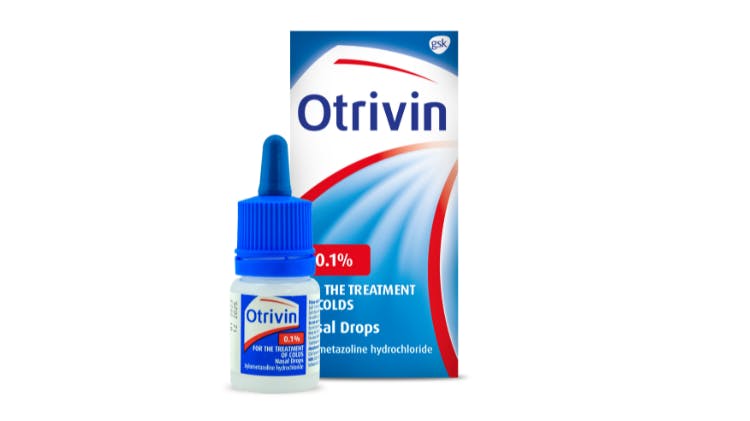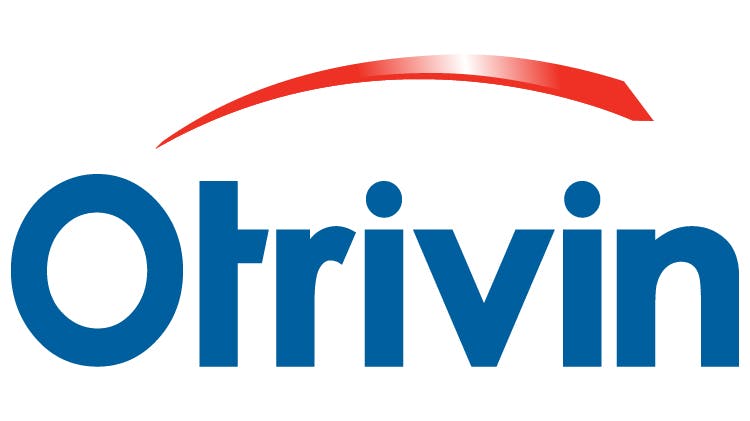Xylometazoline, like other sympathomimetic agents, should be used with caution in patients showing a strong reaction to adrenergic substances, as manifested by signs of insomnia, dizziness, tremors, cardiac arrhythmia, or elevated blood pressure.
Otrivin should be used with caution in patients with: hypertension, cardiovascular disease, hyperthyroidism, diabetes mellitus, phaeochromocytoma, prostatic hypertrophy, monoamine oxidase inhibitors (MAOI) treatment, or who have received them in the last two weeks.
As with other topical vasoconstrictors, Otrivin 0.1% should not be used for more than ten consecutive days: prolonged or excessive use may cause rebound congestion and/or atrophy of the nasal mucosa.3
Keep out of sight and reach of children.
Common side effects, with an incidence of approximately 10%, include dryness or irritation of the nasal mucosa, nausea, headache, or a local burning sensation.3 Occurring at a much lower incidence of approximate 0.0001%, are allergic reactions, including difficulty breathing or swallowing, swelling of the face, lips, tongue or throat, blurred vision, and irregular heartbeat.3
Do not use Otrivin Original before talking to your doctor or pharmacist if any of the below apply:3
- you have high blood pressure
- you suffer from heart disease
- you have an overactive thyroid gland (hyperthyroidism)
- you suffer from diabetes
- you have an enlarged prostate gland (prostatic hypertrophy)
- you have a rare tumour of the adrenal gland that produces high amounts of adrenaline and noradrenaline (phaeochromocytoma)
- you are taking certain medicines used for the treatment of depression. These medicines are:
- Monoamine oxidase inhibitors (MAOI): do NOT use (X) if you are taking or have been taking MAOIs within the last 14 days
- tri-cyclic and tetra-cyclic antidepressants
As with other products for the relief of a blocked nose, Otrivin Original may give rise to sleep disturbances, dizziness, or tremors in very sensitive patients. Consult your doctor if such signs prove troublesome.3
Pregnancy and breast-feeding
Otrivin should not be used during pregnancy Due to potential systemic vasoconstrictor effect.
The use of Otrivin while breast-feeding should only take place on the instructions of a doctor.
Fertility:
There are no relevant data on the effect of Otrivin on fertility, and controlled studies in animals are not available. Since systemic exposure to xylometazoline is very low, effects on fertility are highly unlikely. Ask your doctor or pharmacist for advice before taking any medicine
Overdose:
Excessive administration of topical xylometazoline hydrochloride or accidental Ingestion may cause severe dizziness, perspiration, severely lowered body temperature, headache, bradycardia, hypertension, respiratory depression, coma and convulsions. Hypertension may be followed by hypotension. Small children are more sensitive to toxicity than adults.
Appropriate supportive measures should be initiated in all individuals suspected of an overdose, and urgent symptomatic treatment under medical supervision is Indicated when warranted. This would Include observation of the Individual for several hours. In the event of a severe overdose with cardiac arrest, resuscitation should be continued for at least 1 hour.




